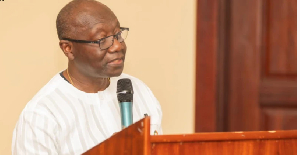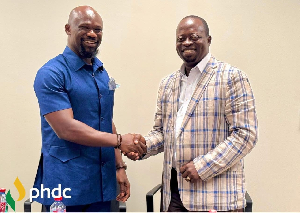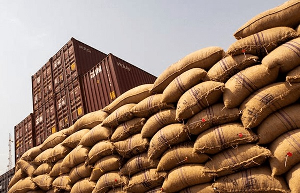Unlike, say, most gatherings of football journalists, this is a well balanced group. Any two teams could progress. Ominously for the hosts of the 2010 World Cup, South Africa look the least likely to do so. The SAFA may have forked out a fortune to hire Carlos Alberto Parreira but so far the Brazilian has done little to suggest he's about to reverse the Bafana Bafana's steady downward slide.
South Africa famously won the African Cup of Nations in their first ever appearance at it, in 1996. They were beaten finalists two years later and continued to regress by one step at every subsequent edition, hitting rock bottom in 2006 when they departed after the first round having mustered neither a point nor a goal. They made it to Ghana by dint of being one of three best runners-up during qualifiers, squeezing in behind Zambia. On a recent visit to South Africa, even Sepp Blatter called on the Bafana to "wake up".
With his focus firmly on the World Cup, Parreira has plumped for a young squad. That's not the reason he omitted Benni McCarthy, though - failure to resolve a long-running barney between the striker and officialdom is to blame for that. In McCarthy's absence, responsibility for scoring goals will fall to 32-year-old Sibusiso Zuma, whose decline from promising talent to increasingly ineffective shell has mirrored the Bafana as a whole. South African goals have been scarce and Parreira's gamble is that one or more of 20-year-old Excellent Walaza, 22-year-old Lerato Chabangu and 23-year-old Thenbinkosi "Terror" Fanteni will, unlike Zuma, fulfil their potential. Walaza is the most likely to start alongside Zuma if the manager opts to deploy two up front, though that's far from certain, as in the build-up he's swung from 4-4-2 to 4-5-1.
One piece of tinkering Parreira seems to have settled on is to break up the central defensive partnership of Aaron Mokoena and Nasief Morris, pushing the Blackburn man into midfield and replacing him at the back with burly-but-painfully-slow Sundowns blocker Benson Mhlongo. The Morris-Mhlongo pairing will surely be exposed by speedy Senegal, for one.
The Senegalese media are convinced their team should win the tournament. They're certainly in the right half of the draw and enjoyed an impressive 2007, scoring goals a-go-go as they topped a straightforward group and beat the likes of Mali, Guinea and Benin in friendlies before drawing with Ghana. Under-performing captain El Hadji Diouf and record goalscorer turned regular substitute Henri Camara are two of the few remnants of the 2002 team that shocked France in the World Cup and only lost the African Cup of Nations final on penalties to Cameroon (after Camara had missed a slew of chances) - now the carrier of most of the country's hopes is Mamadou Niang, the striker who's been irrepressible for Marseille this season. With the likes of Diomansy Kamara and Babacar Gueye flying down the flanks, Senegal serve him with speed and directness.
Tony Sylva is a solid keeper and the full-back berths are secure, even if the squad contains no obvious replacement for Habib B? should he suffer injury or suspension, so Senegal's principal worry concerns the centre-back positions. Abdoulaye Faye is safe, but creaking Lamine Diatta no longer has a club - yet he has so far retained the affection of manager Henri Kasperczak, who must decide whether to persist with the 32-year-old or place his trust in Reading's Ibrahima Sonko, who'll have to deal with the pressure of knowing his inclusion in the squad was considered unwelcome by many Senegalese fans after he'd consistently turned down the chance to play for his homeland over the last few years - he says he wanted to consolidate a first-team place at Reading; fans believe he was holding out for a call-up from France like his cousin, Bacary Sagna.
Long dominant in basketball and handball, Angola are one of the rising forces of African football. The end of conflict has brought increased investment and the domestic league is growing in strength to the extent that it offers an appealing alternative to the South African league for the region's best players. Like South Africa, the Palancas Negras would gladly swap success in 2010 (when they host the CAN) for victories in Ghana but they are well-equipped to go far this time round.
Luis Gon?ves, who took the team to the last World Cup and has been in charge of many of the players since they were children, is still at the helm, ensuring organisation and spirit is still high. In Germany two years ago, Angola were guilty of being excessively negative, but in Ghana they should be more assertive, having scored freely during qualification thanks mainly to Al Ahly striker Flavio and a man we'll soon be hearing a lot more about - Manucho, the tall and dexterous 24-year-old winger-cum-striker who recently signed a three-year deal with Manchester United after excelling during a trial there.
If Angola are on the way up, Tunisia, champions four years ago, seem to be on the way down. Their club sides may prosper, largely on the back of imports, but performances suggests the national team is struggling. Once a hero, manager Roger Lemerre is now widely scorned for his tactics and selections, such as his lack of faith in Etoile du Sahel striker Amine Chermiti and Leverkusen defender Karim Hagui.
Prediction:
1) Senegal
2) Angola
3) Tunisia
4) South Africa
For more on the African Cup of Nations, go here. Group A is previewed here, Group B here and Group C here












